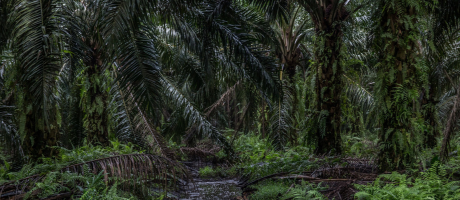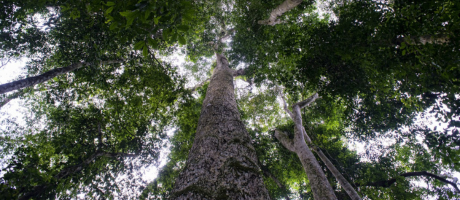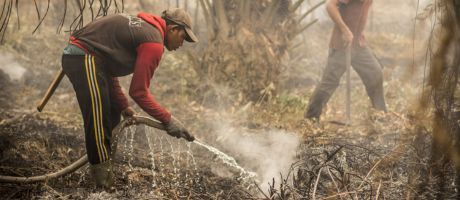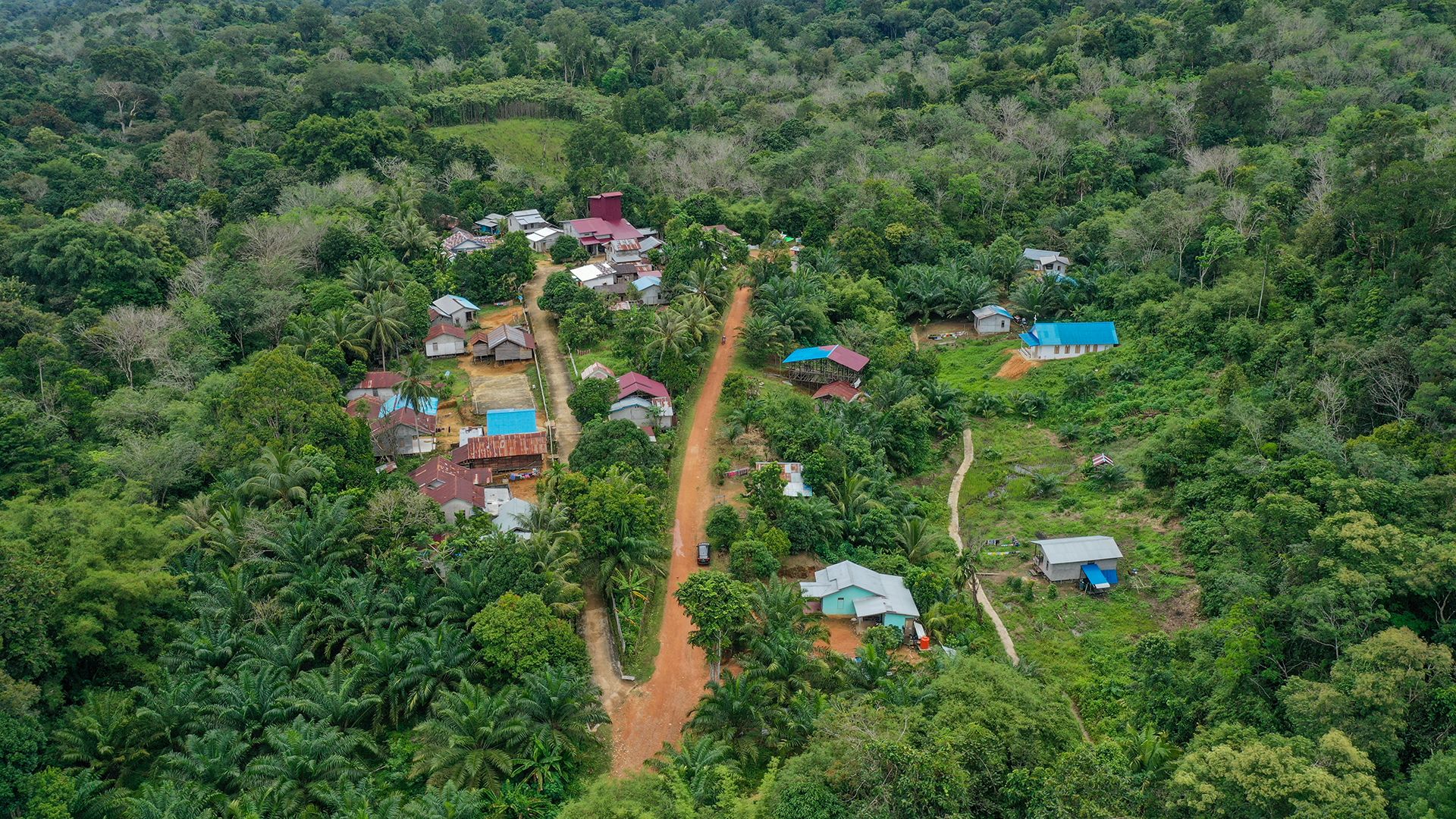
RSPO verification mission shows Socfin certifications are unjustified
We call upon the Roundtable on Sustainable Palm Oil (RSPO) to undo certifications to Socfin, Africa's biggest plantation company. We also ask to improve on transparency in its process, recognize the climate of fear, and investigate other allegations as well. Please read below in English and French.

Commitment for forest protection and halt of road building and logging in Ebo Forest
Ebo Forest in Cameroon is again under threat. This time for road building. We urge the international donor community to act now, prevent the destruction of this iconic forest and commit to inclusive development pathways for the Ebo communities.

Using evidence and the media to eliminate mercury in Bolivia
In 2020, IUCN NL together with local partners carried out an investigation about informal mercury trade in different countries. Our local partner organisation CEDIB has gathered ground-breaking evidence about the informal mercury flows to and from Bolivia. They used this evidence and the media to make the public and government aware of the issue of mercury trade and push for action. CEDIB’s efforts were successful: the Bolivian government will start a national plan of action to reduce and phase out mercury.
Header photo: Landscape of the San José de Chiquitos mountain range (c) Sara Crespo-Probioma.

Community forest tenure rights — ten conditions for success
The formalization of forest tenure rights of Indigenous people and local communities is expected to contribute to forest conservation, livelihood improvement and local self-determination. But formalization alone is not enough. More attention is needed for the conditions that must be in place for these expectations to materialize.

Governor’s veto against mining important step towards protection of a critical watershed in the Philippines
The Tampakan mining project in the province of South Cotabato on the Philippines’ southern island of Mindanao is said to be the largest undeveloped copper-gold mine in Southeast Asia. Opening the mine would spell disaster for the region’s watershed systems, agricultural lands and climate resilience. Since the 1990s, the mine has faced stiff resistance from civil society, farmers and Indigenous peoples. A recent amendment to the province’s environmental code, which would have allowed for open-pit mining in the province, has now been vetoed by the province’s governor.
Header photo: Protest against mining that ATM organised together with human rights groups (c) Alyansa Tigil Mina

Research: international solutions for wildfire damage
Commissioned by Friends of the Earth Netherlands, Indonesia and Malaysia, Utrecht University has conducted research into the consequences of forest fires in Southeast Asia for people and the environment. The findings and international solutions have been published in 3 memos.

EU must urgently assess smallholder needs for deforestation regulation success
In response to the EU’s proposed regulation on deforestation-free products, Tropenbos International and 50 other civil society organizations call on the Commission to urgently assess smallholders’ needs. Without support, smallholders may struggle to comply and be excluded from the EU market while deforestation continues.

A long journey to get rights to manage a village forest in Indonesia
Forests in Indonesia host unique biodiversity and are crucial for the livelihoods and well-being of indigenous peoples and local communities (IPLCs). Despite their value, Indonesia’s forests are under threat from agriculture and other industrial developments. To ensure that IPLCs obtain the rights to manage their territories and secure their livelihoods and the unique biodiversity in the forests, the Indonesian government launched a Social Forestry programme. IUCN NL’s partner organization WARSI helps IPLCs to participate in the programme and secure their rights.
Header photo: Simanau Landscape in West Sumatra province © Nanda Rahman

Communities Zoka Central Forest Reserve jointly celebrate World Environment Day
To commemorate World Environment Day on June 5 of this year our partner organization Friends of Zoka joined in the organization of various events for the local communities living around the Zoka Central Forest Reserve. This forest reserve is a 1259-hectare natural forest in the Northern region of Uganda and includes among others the endangered Afzelia Africana tree species, which is a top target for illegal loggers. Friends of Zoka is protecting the Zoka forest from illegal logging.
Header photo: Participants of the nature walk (c) Friends of Zoka
